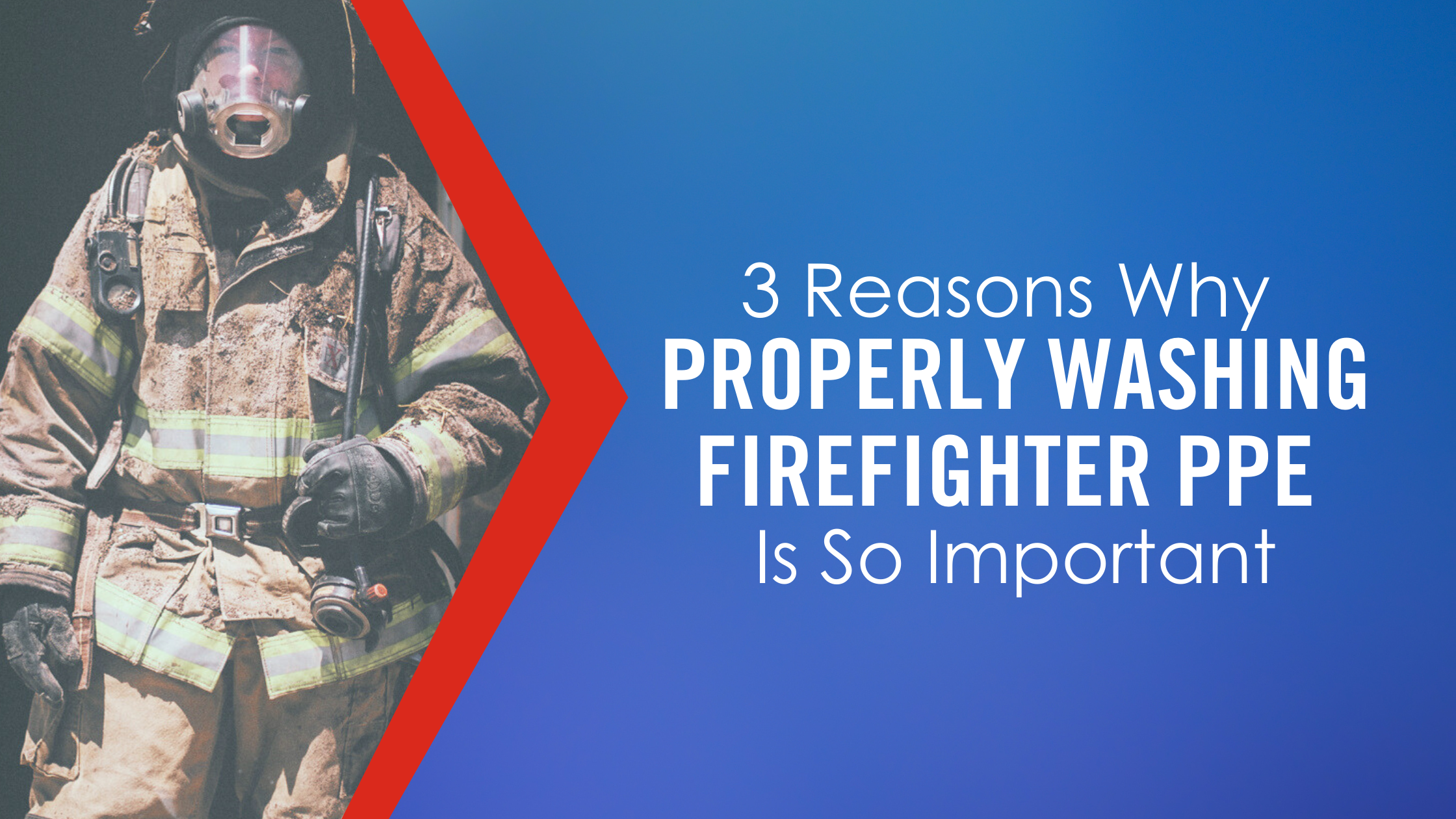On the fireground, you trust your PPE with your life. However, the effectiveness of your gear heavily depends on proper maintenance and cleaning. The NFPA 1851 standard outlines the necessary procedures for the selection, care, and maintenance of firefighter PPE. Ignoring these guidelines can lead to severe consequences, not only for the gear but also for the health and safety of the firefighters.
The Consequences of Improper PPE Cleaning
1. Dirtier Gear
Fire scenes are full of hazardous substances, including carcinogens, toxic chemicals, and biological contaminants. If PPE is not cleaned properly, these harmful substances can remain on your gear.
Fireground contaminants have linked to chronic health issues such as cancer, respiratory problems, and heart conditions. NFPA 1851 provides detailed instructions on routine and advanced cleaning to ensure that these contaminants are effectively removed, reducing the risk of long-term health problems.
It’s important to know that not all cleaning methods are created equally. While NFPA 1851 has minimum thresholds for contaminant removal, certain cleaning methods work better than others at removing specific contaminants.
Every cleaning method, from extractors to ultrasonic to CO2, has benefits and drawbacks. It’s important to consider factors like what you were exposed to on the fireground when considering gear cleaning options. A verified Independent Service Provider (ISP) can help walk you through the available options and ensure that your gear is cleaned with the best available methods.
2. Damage to the Gear
Beyond the dangers of dirty gear, improper washing can also leave you with damaged gear that doesn’t perform on the fireground.
Harsh detergents, excessive heat, or inappropriate washing machines can degrade the fabric and compromise the gear's structural integrity. This can result in weakened seams, tears, and affect the garment’s overall durability.
It’s also important to pay attention to what gear is washed and to determine if gear needs to be dissembled prior to washing. Washing like gear with like gear (e.g., thermal barriers with other thermal barriers) can prevent unnecessary abrasion that could weaken your gear. It can also be important to seal the closures on jackets to prevent rips and tears.
NFPA 1851 specifies the use of specialized washing machines and specific detergents to preserve the gear's protective qualities. Following these guidelines helps maintain the integrity and longevity of the gear, ensuring it remains effective in the field.
3. Danger to Others
While it’s your PPE, it’s not just you who can be affected by improper cleaning.
Washing contaminated PPE without proper precautions can expose the person handling the gear to hazardous substances.
It should go without saying, but never wash PPE in your home washing machine. Not only will it not clean effectively and likely damage your gear, it can also expose everyone else in your home to the contaminants found on your gear.
NFPA 1851 recommends using industrial-grade extractors and following strict safety protocols to protect those responsible for cleaning the gear. Adhering to these guidelines minimizes the risk of secondary exposure to harmful substances, safeguarding the health of those involved in the cleaning process.
The Importance of Following NFPA 1851 Guidelines
The primary goal of NFPA 1851 is to protect the health and safety of firefighters.
By adhering to the standard, fire departments can ensure that PPE is cleaner and more able to provide protection on the fireground. That in turn reduces the risk of health issues and enhances the overall safety of firefighters.
Proper maintenance and cleaning can help to extend the lifespan of firefighter PPE, representing a cost-saving measure for fire departments. Regular inspections and adherence to cleaning protocols help identify and address issues before they become significant problems.
NFPA 1851 also emphasizes the importance of documentation and record-keeping. This ensures that all maintenance activities are tracked and that the gear is consistently maintained according to the standard. Compliance with NFPA 1851 demonstrates a commitment to firefighter safety and can be crucial in the event of an audit or investigation.
A Culture of Safety
Properly washing and maintaining firefighter PPE isn’t just a matter of routine care; it’s a crucial part of your department’s safety.
By following NFPA 1851 guidelines, fire departments can protect their personnel from the hidden dangers of contaminated gear, preserve the integrity of their equipment, and demonstrate a commitment to the highest standards of safety and care.





